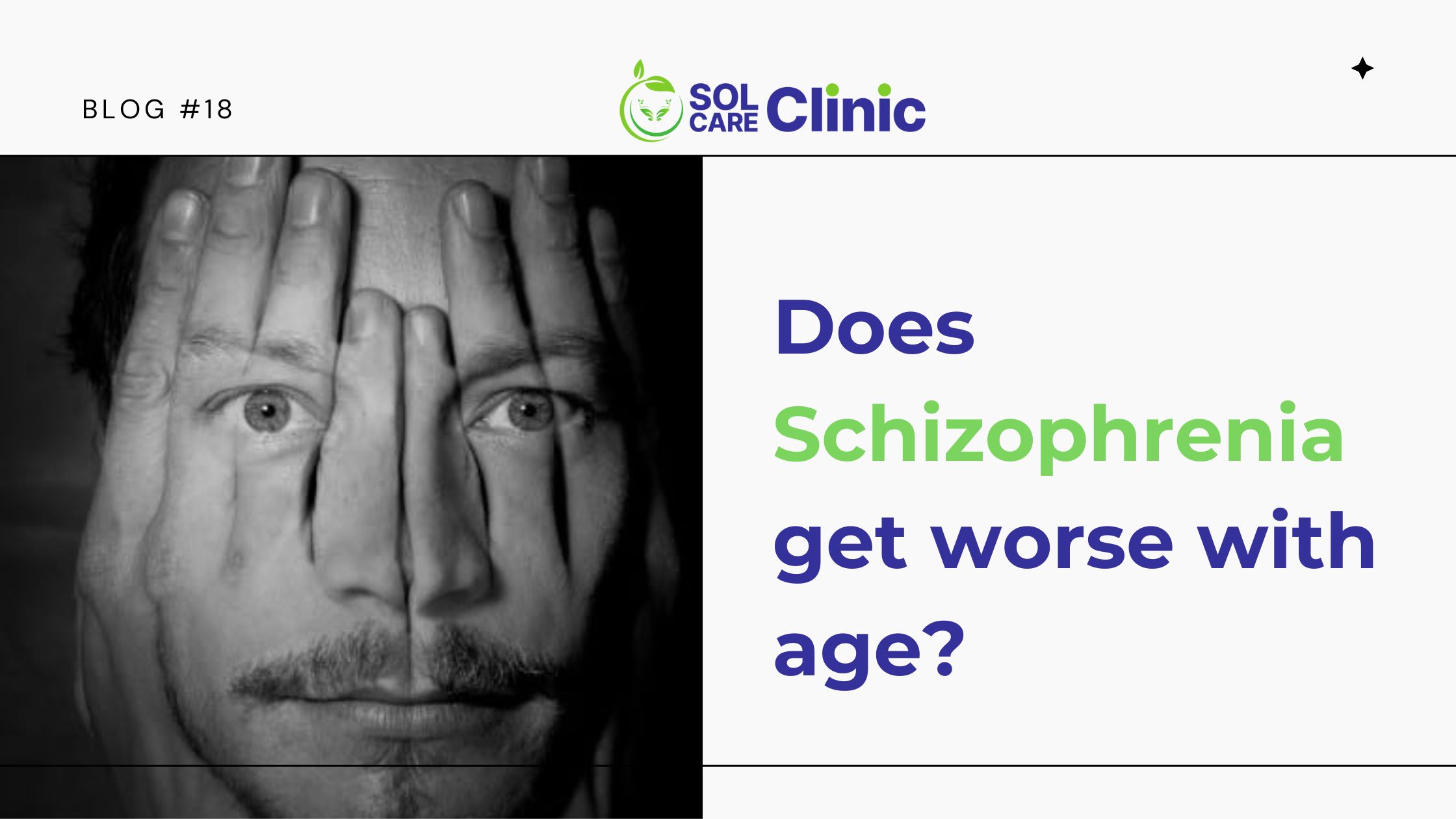For the vast majority of people with schizophrenia, the condition is a lifelong journey.
Side effects frequently start in adolescence, with times of more prominent power occasionally. As you age, confusion can arise. This primarily happens because schizophrenia influences your entire body, in addition to your mind.
What should you anticipate from this psychological well-being condition, and how should your treatment design change as you age? This article investigates these themes and suggests the most proficient method to proceed.
Managing Schizophrenia: Early Diagnosis and Treatment
Schizophrenia is a complex condition that requires a thorough evaluation for diagnosis. Typically, a doctor will diagnose schizophrenia if key symptoms persist for at least a month. For a diagnosis, effects like depression and paranoia need to last at least six months and significantly impact daily functioning.
Symptoms of schizophrenia are categorized as either positive or negative. Positive symptoms include noticeable changes in behavior and thoughts, such as hallucinations and delusions. Negative symptoms involve a decline in normal functioning, such as feeling emotionally detached, losing interest in relationships, and withdrawing from social interactions.
Early diagnosis and treatment are crucial, as evidence suggests that earlier intervention can lead to better long-term outcomes. This may make it easier to manage schizophrenia as you age.
There is ongoing debate about whether schizophrenia accelerates aging. Some studies suggest it might be due to factors like substance abuse, poor diet, and inflammation. Research indicates that normal brain aging may occur faster in those with psychotic disorders. However, early treatment can potentially improve long-term cognitive and functional outcomes.
Schizophrenia Symptoms in Later Life
People with schizophrenia often experience gradual changes in their thinking, social functioning, and mood before the onset of psychotic symptoms.
Its symptoms can vary, but they typically include:
-
Psychosis Symptoms
These involve changes in thinking, behavior, and perception, such as hallucinations, delusions, and alterations in movement or thought processes.
-
Negative Symptoms
It includes a loss of motivation or interest in daily activities. Individuals may withdraw from social interactions or find it difficult to express emotions.
-
Cognitive Symptoms
These involve attention, memory, and concentration challenges, which can make it difficult to make decisions, learn, or follow conversations.
While there is limited recent research on schizophrenia symptoms in later life, older studies have shown that these symptoms can change with age. They may worsen, remain stable, or improve over time.
Does aging with schizophrenia influence psychological well-being?
As per the National Institute of Mental Health (NIMH), about a portion of individuals with schizophrenia additionally experience other emotional well-being conditions. They can have an expanded gamble of some emotional wellness conditions as they age, including sadness.
Individuals with schizophrenia may likewise be more at risk of encountering self-destructive ideation all through their lives. Nonetheless, they are most in danger during their most memorable ten years with the condition. The risk diminishes if an individual creates it sometime later in life.
Treating Schizophrenia as You Age
As you age, treating schizophrenia may require adjustments to your care plan. Medications may need to be monitored and adjusted to account for changes in how your body processes them. Addressing physical health conditions that can arise with aging is important, as they can impact your mental health.
- Monitor and Adjust Medications: Regularly review and adjust medications with your healthcare provider to address changes in how your body processes them.
- Manage Physical Health: Address age-related physical health conditions that can impact mental health and treatment effectiveness.
- Enhance Social Support: Stay connected with family and involved in community activities to reduce social isolation and improve mental well-being.
- Utilize Cognitive and Behavioral Therapies: Continue or start therapies to manage symptoms and adapt to cognitive changes that may occur with aging.
- Plan for Long-Term Care: Consider future living arrangements and legal or financial plans to ensure ongoing support and care.
- Maintain Open Communication: Regularly contact your healthcare team to discuss any changes in symptoms or health and adjust treatment as needed.
Does Schizophrenia Intensify Over Time? Let’s Find Out!
Maturing patients with schizophrenia can’t be treated as only sequentially more established grown-ups. In schizophrenic patients with a lower future than those not impacted by schizophrenia, ‘more established’ may require an alternate definition. Individuals with it in their forties or fifties should be dealt with restoratively, similar to patients in their sixties or seventies in everyone.
Patients with late-beginning schizophrenia (sickness beginning after age 40) have a superior guess and require lower drug portions for the condition to be viewed as taken care of. In patients with beginning-stage schizophrenia, maturing can be related to further developed side effects; an upgraded capacity to perform regular errands has been noticed.
Therefore, even though schizophrenic patients age faster physically and have gained co-morbidities compared to the general population, their mental decline is not faster, and their condition may get better with age. While the reason is not apparent, it may be a combination of effects such as the neuroplasticity of aging and better use of coping techniques. Medications may affect brain structure and produce lasting benefits.
Conclusion
Schizophrenia is a chronic mental disorder that can present significant challenges for both the individual affected and their loved ones. Staying alert to changes in your loved one’s behavior is crucial, even if they seem minor. By recognizing these changes early, you can intervene before their symptoms escalate. If you notice signs that your loved one’s symptoms are worsening, discussing your concerns with their doctor and healthcare team is important.





